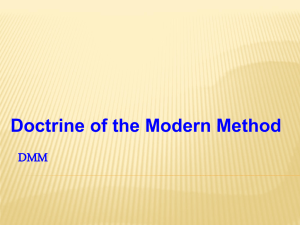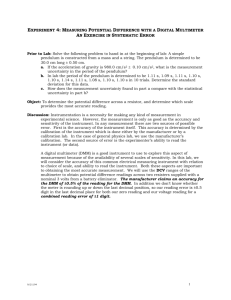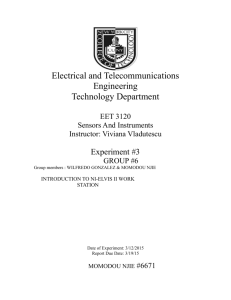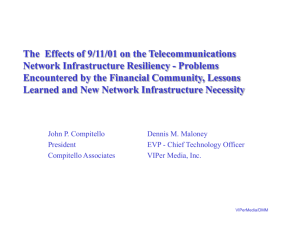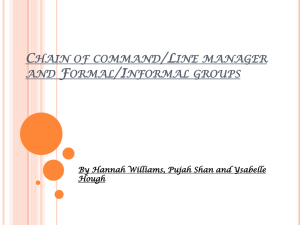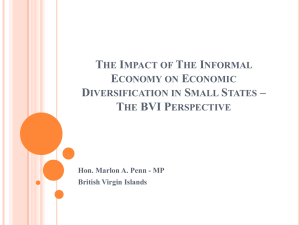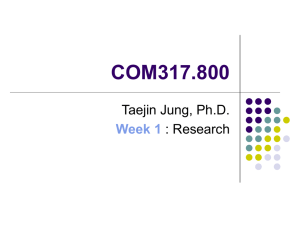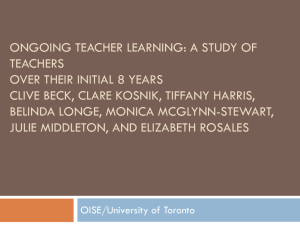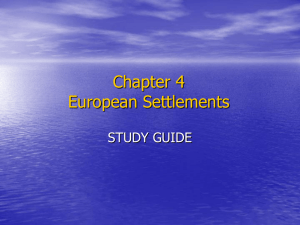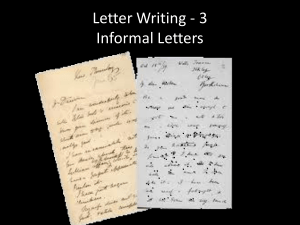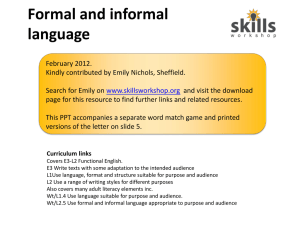MO - SWAP-bfz
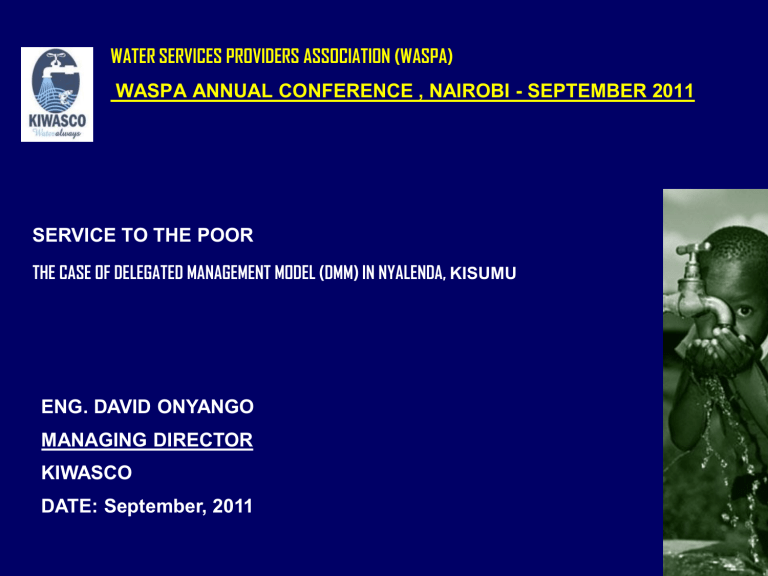
WATER SERVICES PROVIDERS ASSOCIATION (WASPA)
WASPA ANNUAL CONFERENCE , NAIROBI - SEPTEMBER 2011
SERVICE TO THE POOR
THE CASE OF DELEGATED MANAGEMENT MODEL (DMM) IN NYALENDA,
KISUMU
ENG. DAVID ONYANGO
MANAGING DIRECTOR
KIWASCO
DATE: September, 2011
Structure
1.0 Introduction
2.0 Delegated management Model Concept
3.0 Implementation of DMM
•
Mobilization & Project Goals
• Construction
• Selection, Contracting, & Training of MO
• Tariffs & Operations of DMM
4.0 Benefits to KIWASCO & Customers
5.0 Lessons Learnt
6.0 Challenges
7.0 Conclusion
1.0 Introduction
• Kisumu is Kenya's third largest city, with a population of around 520,000 people.
• 60% of the population lives in informal settlement
• KIWASCO is mandated to operate water and sewerage services in Kisumu Municipality covering an area of 297km2.
• KIWASCO is a limited liability company owned by the
Municipal Council of Kisumu. Has been in operations since 2003.
2.0 Situational Analysis in Informal Areas (Pre-DMM)
• Since inception, KIWASCO realised that 60% of its customers lived in the various informal settlements -
Nyalenda being the largest – population of about 100,000.
• KIWASCO was losing over 80% of water produced and most of this was in the informal settlements.
• Residents in the informal settlements were noted to pay more than 10 times the cost of water in other areas leading to poor access.
• High incidences of water-related diseases reported e.g.
Cholera, typhoid, due to poor water quality arising from leaks.
• Vandalism became a very serious problem due to lack of ownership of the water infrastructure in the informal areas.
So?...
• Given the situation it became apparent that a new approached be developed to tackle the problem.
• After extensive consultation, a new Model named
Delegated Management Model (DMM) was thought to be an appropriate solution.
• So What is DMM?
2.1 Delegated Management Model (DMM)
• The DMM concept is a partnership between
KIWASCO and the community in water service delivery
• It involves identifying resellers of water within the informal settlements and selling water to them in bulk through a master meter.
• The resellers referred to as Master Operators (MO) then meter and sell the water to the community at some profit.
• Master Operators collect revenue from their connected customers (community) and in-turn pay
KIWASCO.
2.2 Delegated Management Model Pictorial
2.3 Relationships in DMM
Regulates service standards and price
Also arbitrates disputes
Consu mer
)
(Kiosk,
Stand pipe,
Individual
Utility
Pays utility for water bought
Pays for Water Consumed
Retails Water to consumers & maintains MO lines
Sells water in bulk to MO
MO
(CBO,
NGO,
Individu al)
3.0 Implementation of DMM in Nyalenda
3.1 Project Goals
• Extend Water supply lines into the informal settlements, to provide quality potable water at affordable prices
• Reduce water losses from KIWASCO main supply lines arising from illegal connections and vandalism
• To pilot a model capable of providing piped water to slums for replication in other parts of the city
3.2 Mobilisation & Outreach
• The concept was introduced to the community in meetings where the benefits were explained to: o Leaders (Community & Political) o Consumers, and o Administration
• The community had a chance to interrogate the concept at these interactive gatherings. Some of the questions helped further refine the concept.
• At the end of community mobilisation, a project implementation committee was formed with representatives from the community, local administration and KIWASCO.
3.3 Construction
• This involved construction of 5No 50mm diameter
Master Operators’ pipes running 600 meters into the settlements.
• On each line, 12No chambers with a capacity for 15No meters were constructed.
3.3 Construction
• Meter points were installed in the chambers
• The chambers are lockable and keys are in the hands of the
MO
• Construction was done using local artisans and labourers under the supervision of the project implementation committee.
3.4 Contracting of Master Operators (MO)
Must
• Be a registered group
• Come from the community
• Have expertise
• Basic level of Education
• Have an organisational/ group
• Have experience in water sector and Plumbing
• Have a source of finance structure in place
3.5 Contracting of Master Operators (MO)
Added Advantage
• Bank Statement
• Gender sensitivity
• Plot ownership
3.6 Selection of Master Operators
• MO were selected in a two-stage process. Each stage intended to identify strong suitable CBOs, individuals, or associations capable of realising the project.
• The first stage :
Open invitation through the press
Community Vetting through Project Committee of all respondents to confirm residence in locality.
• Second Stage
Interview by KIWASCO to elicit information on the group, its membership, qualifications, business experience, source of finance, experience in water sector or plumbing, etc
• The group that finally emerged top was selected to be the MO.
3.7 Training of MO
Prior to signing a contract, the selected MOs were taken through training by Kenya Water Institute (KEWI) on:
• Budgeting and record keeping
• Management
• Customer care
• Billing
• Revenue collection
• Line maintenance
• Quality surveillance
The training lasted a week .
3.8 Contracting
• A formal contract was entered into between KIWASCO and MO. The contract defined rights, obligations and responsibilities for both parties.
Contract Covers:
• Asset ownership,
• O&M responsibility
• Tariff to be applied
• Regulation
• Asset extension
3.9 Tariffs
All Master Operators must charge the same rates as outlined in the tables below:
MO Domestic Tariff MO Kiosk Tariff
Water
Consumption
0-6 m 3
KES
180 (min flat rate)
Water
Consumption
0 -10 m 3
KES
400 (min flat rate)
7-20 m 3 35 per m 3
21m 3 and above 50 per m 3
11m 3 and above 45 per m 3
Other Costs Associated with Water Connection (Comparison of MO vs. KIWASCO)
Item
Meter rent
MO prices (KES)
70/month
KIWASCO prices (KES)
150/month
Connection Fee 1,500
Deposit (Domestic) 1,000 (refundable)
Deposit (Kiosk) 5,000 (refundable)
4,000
1,800 (refundable)
10,000 (refundable)
3.10 Operation of DMM
• The first lines started operating in 2006 and 2 more lines added in
2008.
• 8No More lines to be added in 2011
• During their operation the following progress has been recorded:
6
7
4
5
1
2
3
Line Kiosks
9
17
12
16
22
-
-
76
2008
H. holds TOTAL
2011
Kiosks H. holds Total
65
17
74
34
39
14
60
215
68
229
7
19
4
-
19
35
26
-
52
-
20
30
156
68
41
52
208
68
61
82
3 62 65
112 188 158 654 781
One would observe a huge growth in household connections compared to kiosks.
• A recent evaluation of the project revealed that each kiosk serves about 50 households.
Household population is estimated as 8 persons.
• The project serves about 64,000 people.
• There are however some 688 customers who are still served by KIWASCO directly
• NRW has reduced to about 6.8%
3.11 Billing & Collections
Year
2006
2007
2008
2009
2010
2011
Billing
398,885
1,139,425
2,481,260
4,290,783
5,229,570
5,429,690
Collections
379,040
1,038,130
2,191,461
3,935,910
4,597,479
5,006,489
4.0 Benefit of DMM to KIWASCO and Customers
•
•
•
•
•
Improved system monitoring leading to reduction of
Non-Revenue Water.
Reduced tariffs, Penetration of services and Improved health in the informal settlements
Created employment and enhanced business skills in the community
Reduced staff-resident interface hence low opportunity for corruption
Reduced costs to KIWASCO (Timely billing & collection)
5.0 Lessons Learnt
Technical and managerial competence of MO are key to successful sustainable operations of DMM
Community participation and support is central to ownership of DMM
Community mobilization in implementation offers an opportunity to marry technical solutions with social concerns.
Pilot projects require strong communication program during implementation and in post-implementation
Communication must have clear messages to galvanize the people and address emerging concerns.
5.0 Lessons Learnt
continues
Hand-holding and buck-stopping by the WSP is essential at early stages of the operations
The contract should aim to equitably distribute and allocate risks between parties to the contract.
Entrepreneurial spirit is required in the MO
Need to provide financial incentive to the well performing MOs to spur growth
6.0 Challenges
Resistance by some community members because of disagreement with MO at personal level
Lack of teamwork and transparency in some MO leading to instability in management
Lack of framework to deal with NRW from MO operations
Continued unplanned nature of the informal settlements
Some MOs have inadequate experience in financial management
Occasional complaints of over-billing
MOs debts to KIWASCO
Lack of adequate infrastructure to allow transfer of all customers to the same platform
Elimination of remaining spaghettis
7.0 Performance of project against the goals
Extend Water supply lines into the informal settlements, to provide quality potable water at affordable prices – Achieved.
Reduce water losses from KIWASCO main supply lines arising from illegal connections and vandalism – Achieved.
To pilot a model capable of providing piped water to slums for replication in other parts of the city –
Achieved.
7.0 Conclusion
From Boutique to Mass market . . .
The DMM was a success measured against its goals
It is a robust platform for service delivery to the poor if properly planned and implemented.
It is easily scalable to other informal settlements.
It requires focused attention through pro-poor unit to manage its operations.
It can be blended with new technologies e.g
Pre-paid meters.
